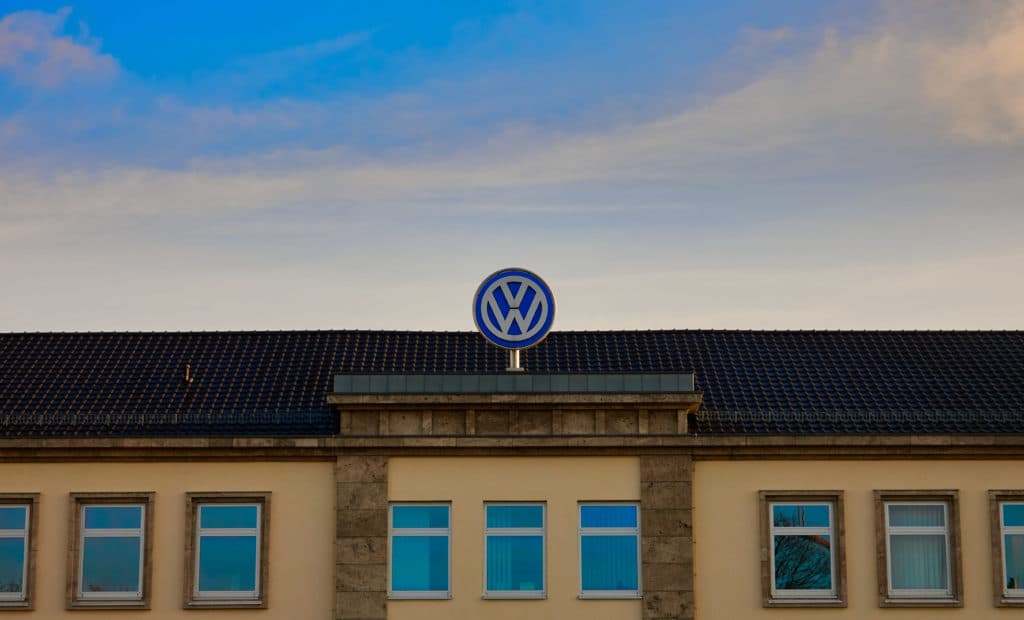Berlin | analogo.de – The automotive supplier Robert Bosch leaves it to whistleblowers in its own company to hire a lawyer if they point out wrongdoing in the company.
The Editor of analogo.de confirmed this fact by questioning a compliance officer of Robert Bosch, Dr. Manuela Schlund. At a conference on whistleblowing and anonymity on November 11 of last year, Dr. Schlund was asked whether the most famous whistleblower in her company, Karsten vom Bruch, would still be in his Bosch job if he had hired a lawyer. Robert Bosch terminated vom Bruch’s contract without notice after the development engineer made critical comments within the company about the Volkswagen diesel scandal. As von Bruch pointed out, it was insufficient to legally get dirty diesel engines through the test cycle. Bosch had developed a test detection function for manipulating exhaust emissions within the engine control system, the EA 189 engine control software.
Nevertheless, the engineer and various colleagues in the company were asked several times to refrain from making particularly critical comments or delete them from an internal online platform. But because vom Bruch was an employee representative, his words did not fall silent. He was dismissed – and the criticism of some of his colleagues fell silent. Bosch succeeded with its intimidation policy, making it difficult for whistleblowers in Germany to tell the truth.
Schlund, a representative of precisely that corporation, was sitting on the plenum of Transparency International and the association Whistleblower-Netzwerk e.V. At the same time, colleagues of the lawyer are seeking complex legal remedies against the engineer who was dismissed two years ago.
In the U.S., the Volkswagen Group (VW) has admitted to deliberate fraud on a grand scale. The fraud software function originates from Bosch, a Bosch engineer who came along with criticism and was virtually ruined by the perpetrator Bosch. This is the status quo for whistleblowers in the Germany of 2021. The year Germany will enshrine the ideas of the EU Whistleblower Protection Directive into German law.
Would vom Bruch still be there if he had voiced his criticism anonymously? Schlund was secretive about this question. She claimed she could not say anything about ongoing proceedings. It is within the whistleblower’s discretion to consult a lawyer at any time.
Technical systems are no substitute for culture
Otherwise, the conference was rather technology-focused. Heise Online was in attendance with Holger Bleich, head of its own investigative unit called c’t. Journalistic media wants a piece of the pie of the big fraud scandals. Every scandal leads to news, which in turn pays journalists.
Bleich has been working with whistleblower issues for years and said on November 11, 2020, that he has a lot of work because companies do not have decent reporting systems. So, is it all just a question of the system? In the end, a very German leverage point.
Where was the question about the basic attitude toward truth among German employees and employers and society itself? Bleich added that employees would not dare to involve their own works council because this would usually involve “stress.”
Works councils across Germany are surprisingly uncritical of their corporate leaders. A fact that will contribute to whistleblowers turning to external channels rather than internal ones, even after 2021. The EU Whistleblower Protection Directive was aware of this state of affairs and consequently designed the directive with an open mind. Bosch speaker Schlund expressed surprise at this point, saying that the company was “endeavoring to approach whistleblowers.”
After all, Bosch had – in a particularly treacherous way – “approached” its whistleblower when they wanted to silence him. This is how the platform ansTageslicht describes the clash between Karsten vom Bruch and the responsible board member Uwe Gackstatter in August 2015, a month before the diesel scandal made headlines around the world. The engineer complained that the industry had only bothered with the smallest possible steps to comply with notoriously unrealistic test procedures and limit values. “The main point is that it’s legal.” Anyone who wanted to go beyond that as an engineer was held back, according to vom Bruch.
One takeaway from the conference is that technical solutions cannot replace a corporate culture that is open to criticism, as is the case in such opportunistic and tricky German states as Baden-Württemberg. This means that whistleblowers in such a cultural environment will continue to have a hard time escaping dismissal in the future. As Transparency moderator, Louisa Schloussen stressed at the outset: “After reprisals happen, you want whistleblowers to be protected. “Shouldn’t it be reversed? Having protection against reprisals beforehand?
In this respect, the event’s real added value was not to have learned of the inadequacy of TOR servers. Instead, it was to have recognized companies’ aggressiveness, who – facing the new law at the end of 2021 – are now extending their influence from works councils to whistleblower networks.
This article was originally published, in German, at analogo.de on 17 November 2020 by Rainer Winters.
